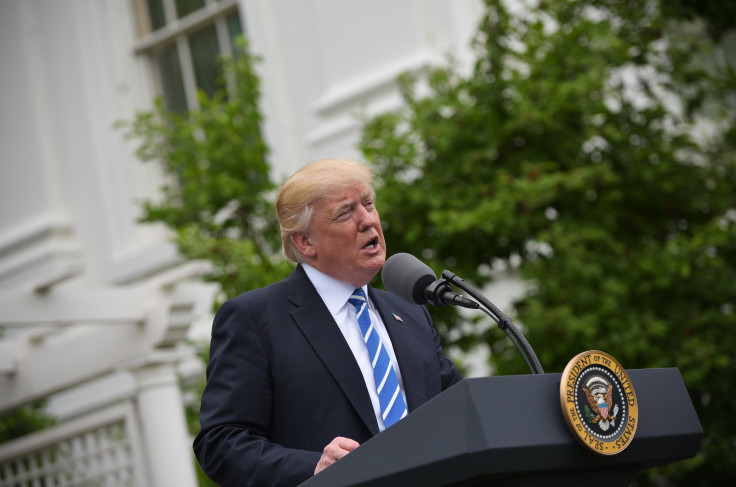What Is A Government Shutdown? Trump Hints At Future Shutdown If Senate Rules Don't Change

President Donald Trump Tuesday appeared to call for a government shutdown later this year, probably in September, in response to a bipartisan funding deal that was expected to be voted on and set to be passed by Congress by the end of this week.
A government shutdown occurs “when Congress cannot resolve budget disagreements for the upcoming fiscal year and stops all but essential federal services. It affects a large number of federal employees, not including military personnel and necessary staff. The shutdown continues until the government is able to negotiate a new budget bill.”
The funding deal struck between Republican and Democratic leaders to fund the government included some of the increased defense spending Trump had requested in his proposed budget, however it did not include funding for the construction of the wall along the Mexican border.
It also includes subsidies for health insurance under Obamacare and provides emergency funds to Puerto Rico in order to aide a budget crisis that has threatened Medicaid payments. The deal was expected to fund the government through Sept. 30, 2017.
Read: Trump 2018 Budget Proposal Increases Funding For Military
However, the government is currently being funded by a temporary measure passed last week that lasts till this Friday. Congress is expected to vote on the deal in the next couple of days.
Trump, in his tweets, said the agreement would need more Republican senators elected in order to pass this deal or alter the Senate rules so they can push and get the spending approved by only securing a majority vote rather than a total of 60. Trump then wrote the country "needs a good 'shutdown' in September" to fix the "mess."
According to NBC News, Trump’s tweets followed the Congress agreeing on a compromise to keep the government open to the proposal of passing the deal with the president’s signature by the end of this week. However, the Republicans also need Democratic votes in order to get the spending bill approved.
Earlier on April 7, Senate Republicans voted to end the filibuster on Supreme Court nominees after a historic change to the congressional body’s rules, allowing them to confirm Justice Neil Gorsuch with only a majority vote. However, Senate Majority Leader Mitch McConnell told reporters Tuesday most of the senators currently do not want to do away with the 60-vote threshold needed to stop filibusters on most legislation.
"There is an overwhelming majority on a bipartisan basis that is not interested in changing the way the Senate operates on the legislative calendar," he said.
Senate Minority Leader Chuck Schumer also reacted to Trump's tweets saying "bipartisanship is best summed up by the Rolling Stones: You can't always get what you want." Schumer said this referring to Trump's 2016 presidential campaign when he played this very Rolling Stones song to close many of his campaign rallies, according to the Guardian.
On Tuesday, House Speaker Paul Ryan said Congress has a "long ways to go" before September but also said he shares Trump's "frustration" with the inappropriateness of the entire process. He also mentioned the plus points of the spending bill, which includes the increase in defense funding.
"I feel good about the wins we got with the administration in this bill," Ryan said.
Trump’s hint towards starting a government shutdown was not clear, as the president has been known in the past to take such stances on important issues before ultimately standing down.
© Copyright IBTimes 2024. All rights reserved.






















